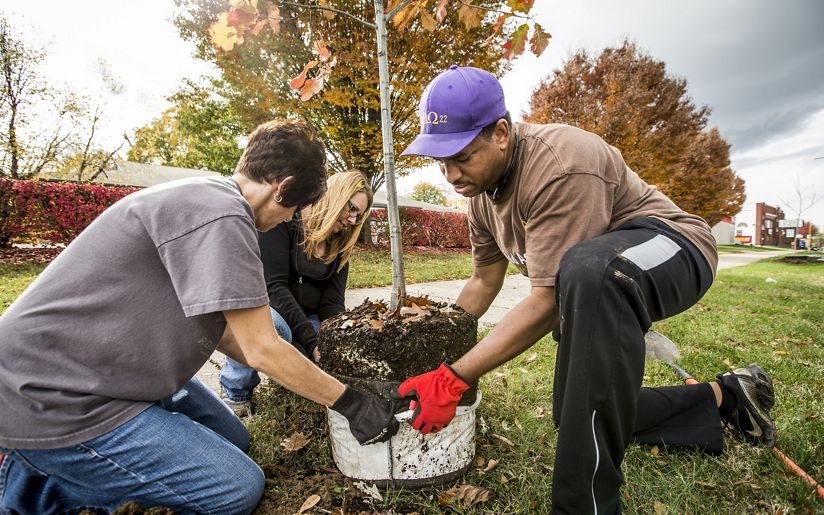- About
- Topics
- Picks
- Audio
- Story
- In-Depth
- Opinion
- News
- Donate
-
Signup for our newsletterOur Editors' Best Picks.Send
Read, Debate: Engage.
| October 14, 2019 | |
|---|---|
| topic: | Natural disaster |
| tags: | #flood, #megacity, #Mitigation, #disaster, #Lagos, #Rainfall, #Africa |
| located: | Nigeria |
| by: | Ndubuaku Kanayo |
Lagos, the commercial hub of the most populous black nation in Africa, is exposed to untold economic and environmental hardship every time it rains heavily. As dwellers of the megacity are forced to grapple with the horrendous effects of floods with human and vehicular activities paralysed to a standstill.
With a population of over 21 million people living and working in Lagos, the city experiences a steady influx of people from neighbouring states, and its population is projected to double in size by 2050.
The city, which has earned the status of the largest city in Africa, has a high proportion of residents living in flood-prone areas. Many of these people are actively employed and vital to the economy; nevertheless, they are forced to settle in these areas due to affordability and other socio-economic reasons.
The occurrence of natural disasters is of growing concern globally due to drastic changes in climactic conditions. These changes are increasingly felt in the Global South, ranging from disruption, damage and loss of lives.
Calculated risks
A recent report by the United Nations Office for Disaster Risk Reduction (UNISDR) titled The Human Cost of Weather Related Disasters revealed that over the last 20 years, 90 per cent of major disasters have been caused by 6,457 recorded floods, storms, heatwaves, droughts and other weather-related events.
"Weather and climate are major drivers of disaster risk and this report demonstrates that the world is paying a high price in lives lost”, said Ms. Margareta Wahlström, head of UNISDR.
Over the last 30 years, urban flooding, a natural disaster in many parts of the world, has continued to rear its ugly head. Across both developed and developing countries, flooding has killed more than 500,000 people, and displaced about 650 million.
Flood, a natural disaster, cannot be entirely avoided; however, the losses and damages occurring due to flood and other weather-related events can be prevented by proper flood mitigation planning.
As such, it’s necessary to have a proper estimation of flood extent for the different flow conditions so that proper flood evacuation and disaster management plan can be prepared in advance.
Careful examination and research from flood areas clearly indicate that heavy rainfall, blocked and/or failure of drainage systems, and lack of land use planning are considered the most frequent reasons for flooding.
Furthermore, investigations into the disaster revealed the adverse implications of flood on local community lifestyle and social relationships, namely property damage, loss of lives, community displacement and mental health issues.
"The sweet dream-turned-nightmare"
Around the Iyana-Ipaja axis in Alimosho area of of the city, dreams turned into nightmares as the flood reportedly swept away an 11-year-old boy and his rescuer into a canal linking Aburo and Iyana-Ipaja in the mainland axis of the state.
The two young boys sent by their parents to buy cooking gas at a gas station unknowingly fell into the drain through which water passed into the canal.
After rescuing one of the boys, the rescuer was swept away by the flood in his quest to rescue the second boy.
Speaking to news men at the scene, Solomon Agboghoroma, a Community Development Association leader in Oki town, blamed the failure of the government to construct a bridge in the area for such incidents.
“People have been dying in situations like this here and all landlords have tried to make it better, including raising almost N4 million for dredging of the canal. The government knows what to do when it is ready because this canal contract was awarded sometime in 2011 or 2012. They should come and make the bridge. The government should widen this road and ensure the canal is dug for the peace and safety of residents” he said.
A United Nations report on the International Strategy for Disaster Reduction, suggests that to reduce the effects of these floods, it is crucial that a sound flood management policy is formulated. One which is driven by knowledge of the frequency and magnitude of impacts of these floods.
More than ever, plans and efforts must be undertaken to break the current event-disaster cycle, even as there is the need for decision makers to adopt holistic approaches for flood disaster management, the report concluded.
On a global scale, the number of people affected, alongside economic damages resulting from flooding are rising at an alarming rate, and society must shift from the current paradigm of post-disaster response to proactive mitigation planning.
By copying the embed code below, you agree to adhere to our republishing guidelines.
